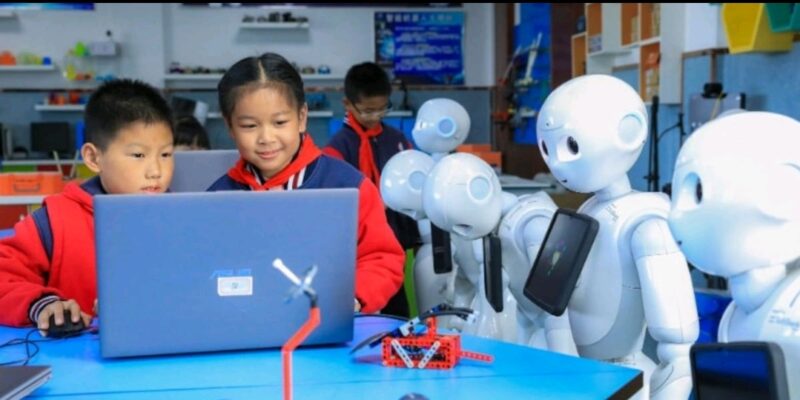Starting this September, something monumental is happening in China—every student, from the first grade to high school graduation, will receive structured education in artificial intelligence. Not as an optional course. Not as a hobbyist’s curiosity. But as a core part of the national curriculum.
At least eight hours per year, every year, from the age of six onward. And we’re not talking dry theory or pie-in-the-sky lectures. This is hands-on exposure to real-world AI tools, practical use cases, and even generative AI. Yes, the same kind of tools used to write stories, generate code, make art, and automate workflows.
This Isn’t Just a Curriculum Shift — It’s a Cultural Shift
This move reflects more than just an update to educational policy—it’s a signal of a deeper mindset transformation. China is beginning to treat AI fluency as a basic skill, no less foundational than literacy or numeracy. In a world increasingly shaped by algorithms, automation, and artificial intelligence, this approach feels both radical and inevitable.
A decade ago, China didn’t even formally recognize machine learning or data science as standalone majors. Now, the nation is laying down a blueprint for embedding AI understanding into the everyday lives of its citizens—starting with its youngest.
From Follower to Frontrunner
What makes this development especially significant is the speed and clarity of China’s pivot. For years, the narrative in tech circles was that China was racing to catch up with Silicon Valley. But today, it’s a different story.
China is not just catching up—it’s moving early, investing deeply, and prioritizing talent development across all levels of society. The country has moved from reactive to proactive: building not just products, but ecosystems. Platforms like DeepSeek and national research institutes are pushing the boundaries of AI advancement. Open-source models, domestic LLMs, and innovation hubs are becoming central pillars of the economy and national strategy.
AI as a Universal Tool, Not Just a Niche Skill
There’s a crucial nuance here: this initiative isn’t just about producing more AI engineers or researchers. It’s about democratizing AI. Teaching students not just how AI works, but how to work with AI. How to think critically about it, how to harness it responsibly, and how to collaborate with it as a creative, analytical, and practical partner.
This is the real story.
AI education in China isn’t about coding robots—it’s about raising a generation that sees AI not as a mystery, but as a medium. Something to be understood, improved, and integrated into daily life, work, and even play.
The West Should Take Notes
For policymakers, educators, and technologists in the West, this should be a wake-up call. While AI is still often treated as a specialized domain or a postgraduate focus, China is laying the groundwork to make AI literacy as fundamental as learning to write your name.
If the 21st century is going to be shaped by artificial intelligence, those who understand it from childhood will not just adapt to the future—they will define it.
In Summary
China’s decision to make AI education mandatory from primary through high school is more than just a policy—it’s a generational bet. A bet that those who grow up understanding AI will not be left behind by it. And that a nation fluent in AI won’t just consume the future—it will build it.
And that, without exaggeration, is the real power move.

